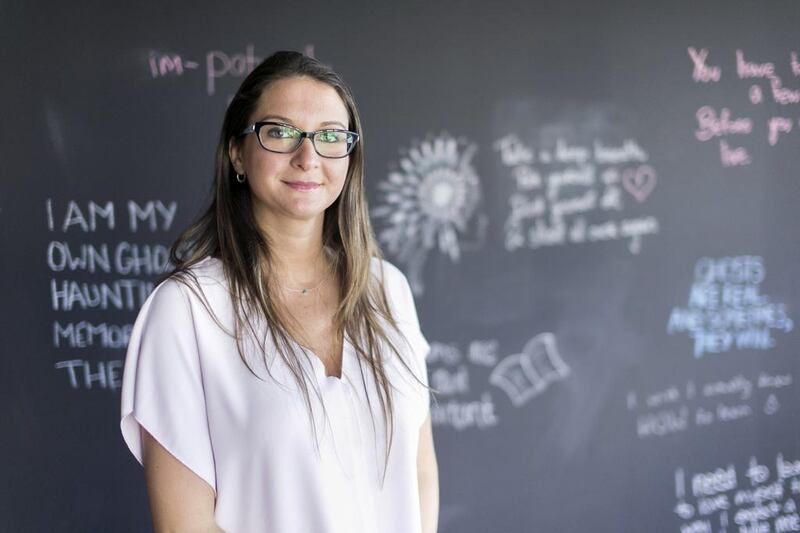DUBAI // Most cases of male depression are not reported because men are afraid to admit something is wrong, mental health experts say.
Globally, about 5 to 10 per cent of men are depressed but not many in the UAE seek help, and those who do wait a long time first.
“There is a lot of under-reporting for male depression,” said Dr Thoraiya Kanafani, clinical psychologist and co-owner of the Human Relations Institute and Clinics, who helps to run support groups for depressed men.
“Men are socialised to believe that they need to suppress their emotional responses. They are taught to be tough, independent and in control.
“Societal pressure makes it very difficult for men to admit they need help because they’re afraid of being looked down upon.
“They use words like ‘I’m so weak’ and ‘I’m not strong enough’, rather than look at it from the reality that depression is a mental health disorder and you can’t blame a person for it.
“Also, a lot of cases aren’t diagnosed because of a bias. It’s much easier for male doctors to diagnose men with stress but not with depression.”
There are many causes of depression. Those who have a family history of mental health disorders are more at risk but social causes can also be a trigger.
Employment is a big cause in the UAE, as are financial difficulties, divorce, the arrival of children, marriage or work problems and substance abuse.
But biological causes such as an abnormal or reduced amount of neutron-transmitters can also be a factor. The onset of depression in men is usually between the ages of 30 and 40.
Treatment depends on the severity, with some needing medication and others opting for natural remedies to relieve the symptoms. Therapy is also an important treatment.
Dr Yaseen Aslam, a psychiatrist who has been working in the UAE for three years, said that a lack of insurance cover was a big problem.
“We need to create more awareness and ask for better coverage,” Dr Aslam said. “These policies discriminate against people suffering with mental disorders and this has a big impact on the speed at which people can recover.
“There is a lack of information and statistics regarding depression prevalence in the UAE. We need to know the demographics of the people suffering to provide appropriate mental health services.
“Thirty per cent of my patients are male and they mostly present with depression or an anxiety or panic disorder. The vast majority have depression and anxiety.”
Depression is among the top five conditions globally for the cost of its socio-economic effects. Dr Aslam said there needed to be greater education and awareness among doctors not working in mental health.
Dr Saliha Afridi, clinical psychologist and managing director at Lighthouse Arabia in Dubai, said that depression did not discriminate.
“We see men from all parts of the world who are coping with depression,” Dr Afridi said. “The reasons for their depression might be different but they are all experiencing the same symptoms.
“Some groups will report depression more than others. Asians, South Asians, Middle Eastern and certain European countries have a harder time disclosing their feelings to others, especially a doctor.”
In many parts of the western world, November is known as Movember, when men grow moustaches in an effort to raise awareness of male health issues, such as cancer or depression.
Globally, an estimated 350 million people suffer from depression. A total of 12.5 per cent of men in the UK suffer from a mental health disorder and more than five million men in the US experience depression each year.
newsdesk@thenational.ae







